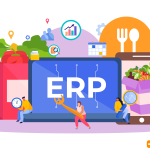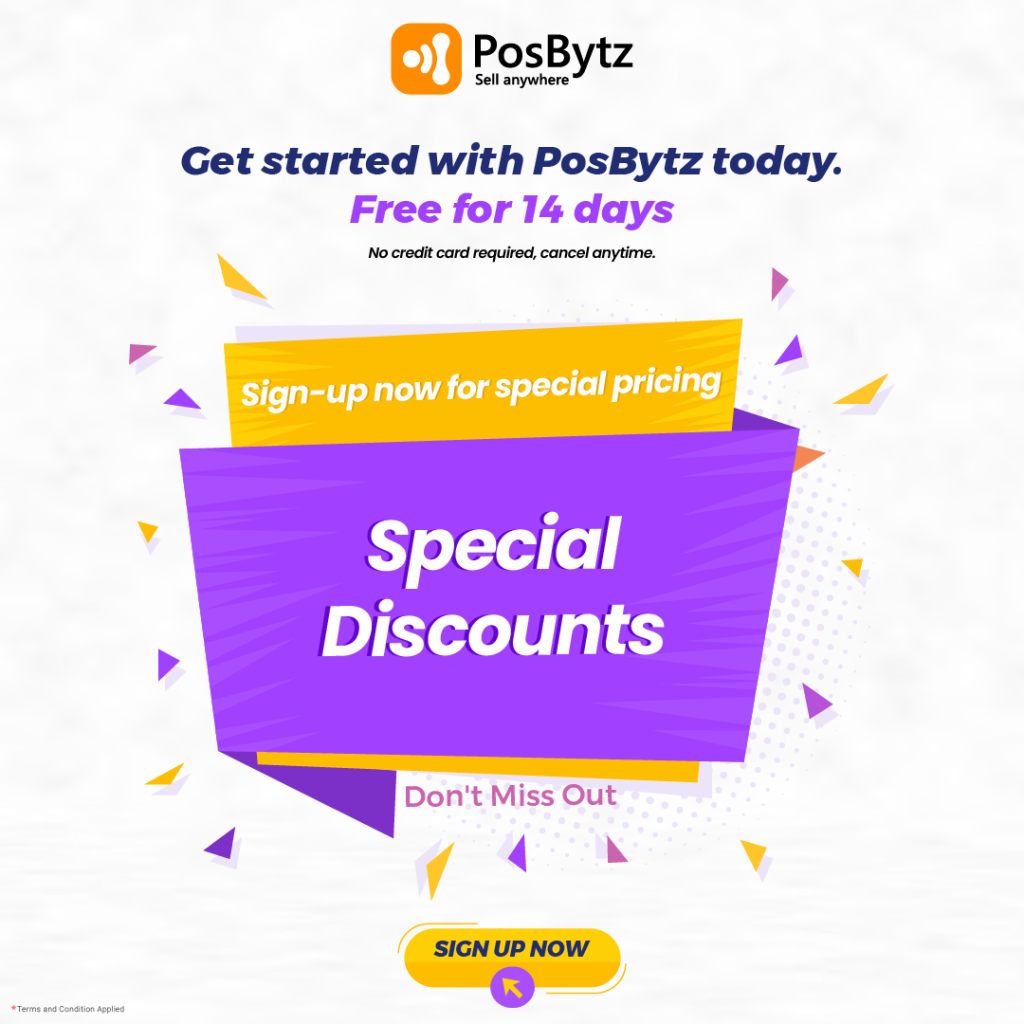- Email:support@posbytz.com
25 Dec

Whether you have a small retail business or chain outlets, customer satisfaction is the game’s name and will ultimately help your business grow.
To satisfy the customers, you must come up with the latest approach in technology that streamlines the business process for both owners and consumers.
There are many retail POS systems for small businesses to ease your job. They will help monitor inventory, sales, transactions from multiple sources, and other administrative tasks constantly, as well as provide insights into the buying habits of your customers.
Why Do Small Businesses Need a POS System?
From inventory management to handling payment transactions and calculation of all business metrics, you need a one-stop solution, small business POS software.
According to a survey report, 7% of retailers had already implemented mobile POS, and 55% had been planning to do so a few years ago.
It’s proven and tested that the implementation of POS speeds up their business by improving their inventory and account management systems. So, all you need to do is make a plan for integrating POS software with your business applications.
However, before checking out the wide range of good POS systems for small retail businesses available right now, you have to know what things to consider while choosing a POS system for your business.
Tips To Choose POS for Small Business
There’s no doubt POS will help you make better decisions, but we’re here to help you decide which one will be the best-suited POS software for your business. Every business has specific requirements related to its market size, marketers, staff, and consumers.
1. Understand your business requirement
First and foremost, narrow down the features that are required for your day-to-day operations and the number of employees; who will be using the software. Another important thing to consider is the demand of the customer.
With the rise of digital payments, for example, many consumers would like to pay from their mobile devices. If you don’t have this payment option, you may lose the sale because you can’t afford it.
So, apart from considering your business needs, have a close look at the latest technological advancements and growing customer demands while listing the features.
Once you’ve determined what your and the consumer’s needs are, compare features and pricing to see which fits within your budget.
2. Choose the right pricing model
Another factor to consider is the cost. You may want to stick to your estimated budget or compare the basic pricing based on the features the chosen POS software has.
Besides this POS software cost, you may have to consider the equipment costs, initial setup costs, payment processing costs, and other monthly processing fees or subscription plans for add-on applications.
You can try Mobile POS to manage your complete POS billing on your mobile phone in Android & IOS. Check out the video. Choose the best one according to your business and budget needs.
3. Decide on features
To help you list out the required features for your small business, we’ve put together a few must-have features that can streamline the overall retail business process.
Inventory management
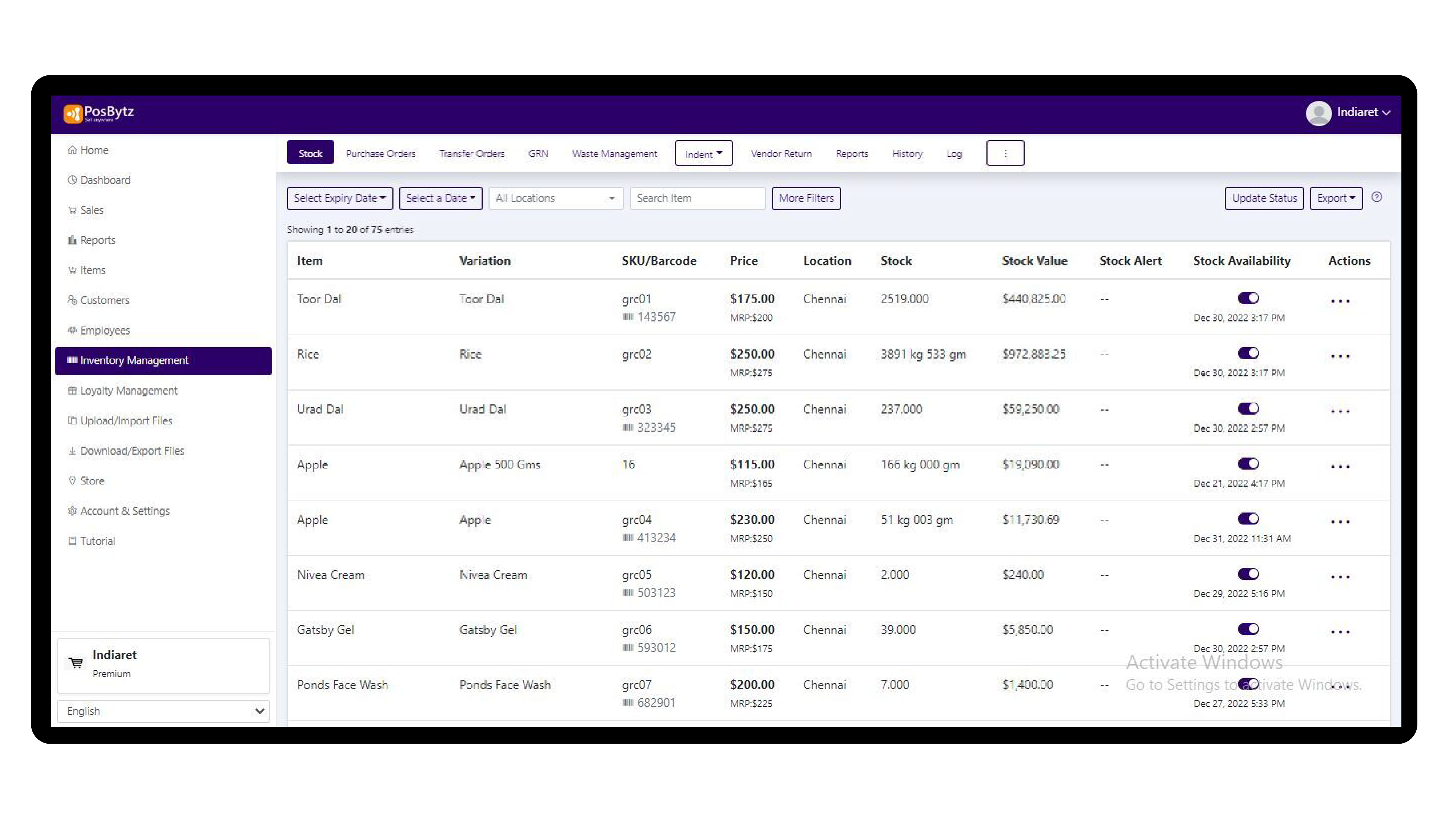
The tags – ‘Out of Stock,’ ‘Out of Order,’ and ‘Closed Outlet’ create a bad impression of your brand. Keeping track of what’s in stock and what products need to be reordered is essential, and it’s simple with a good POS system.
Retail businesses have less complicated inventory structures, so small business POSs are relatively cheaper than the software built for global businesses.
Employee management
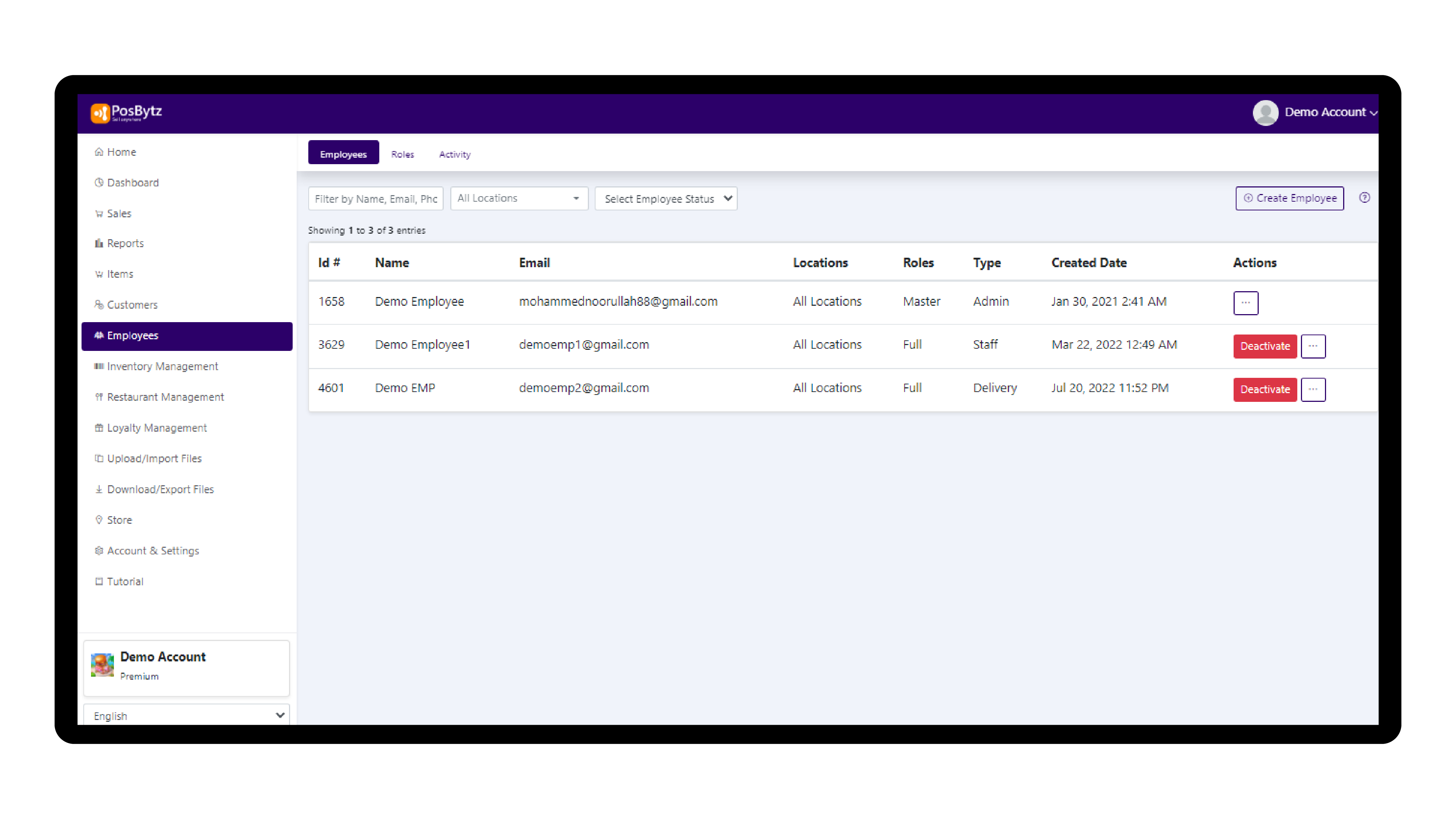
Most POS systems allow the creation of multiple staff profiles, with which you can easily schedule employees’ shift times and handle sales reports for their counters. If you have multiple retail stores with a web POS facility, you can manage the staff and their counters at different outlets using a single application.
Data reporting
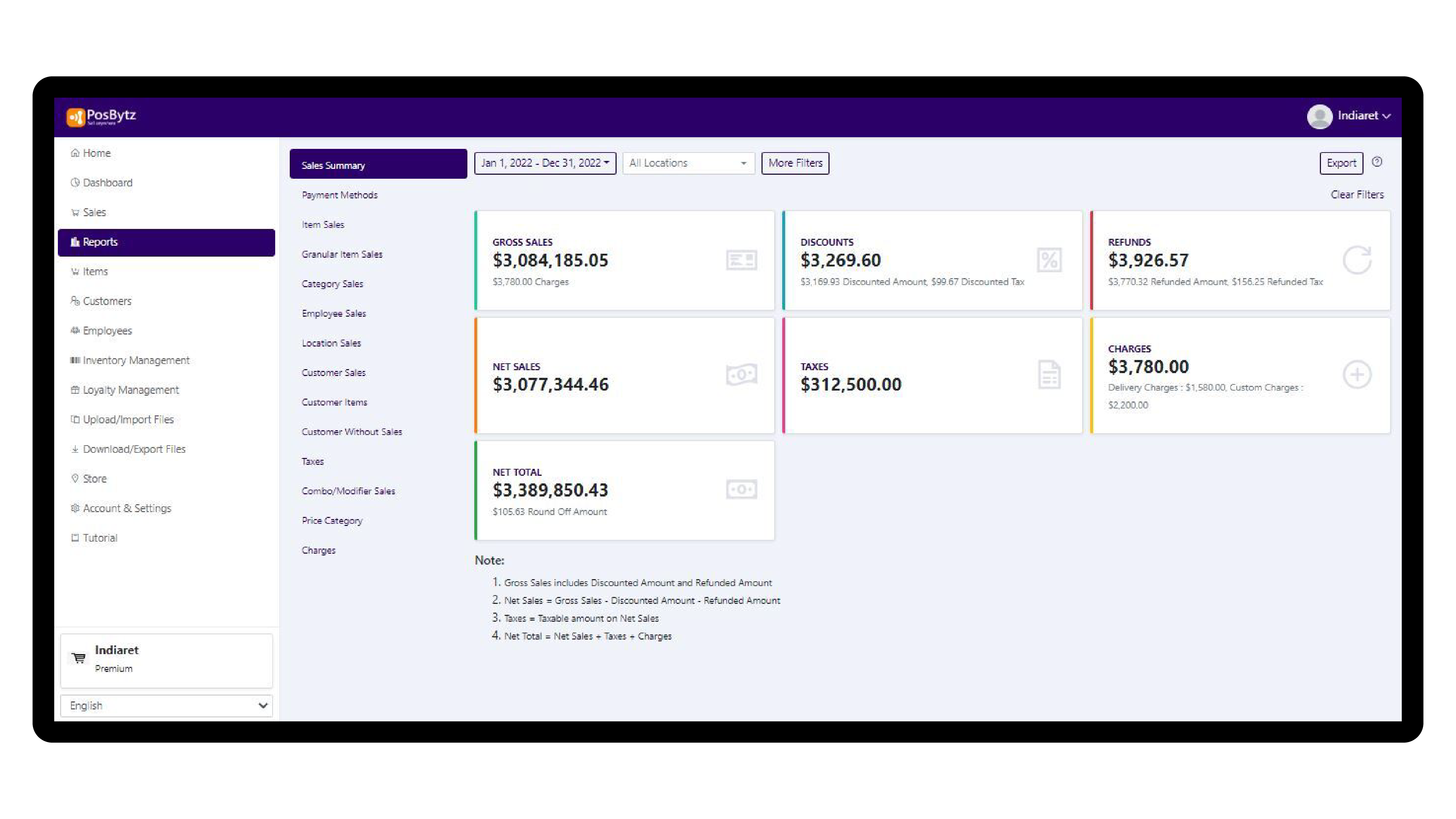
Since you’re getting information on inventory levels and sales data for different outlets within a single application interface, you can make a relatively more informed decision.
Some POS systems come with advanced features that create sales reports and provide valuable insights about customer behaviors, their growing demands, and changes required in your business operation by analyzing the sales report.
Customer management
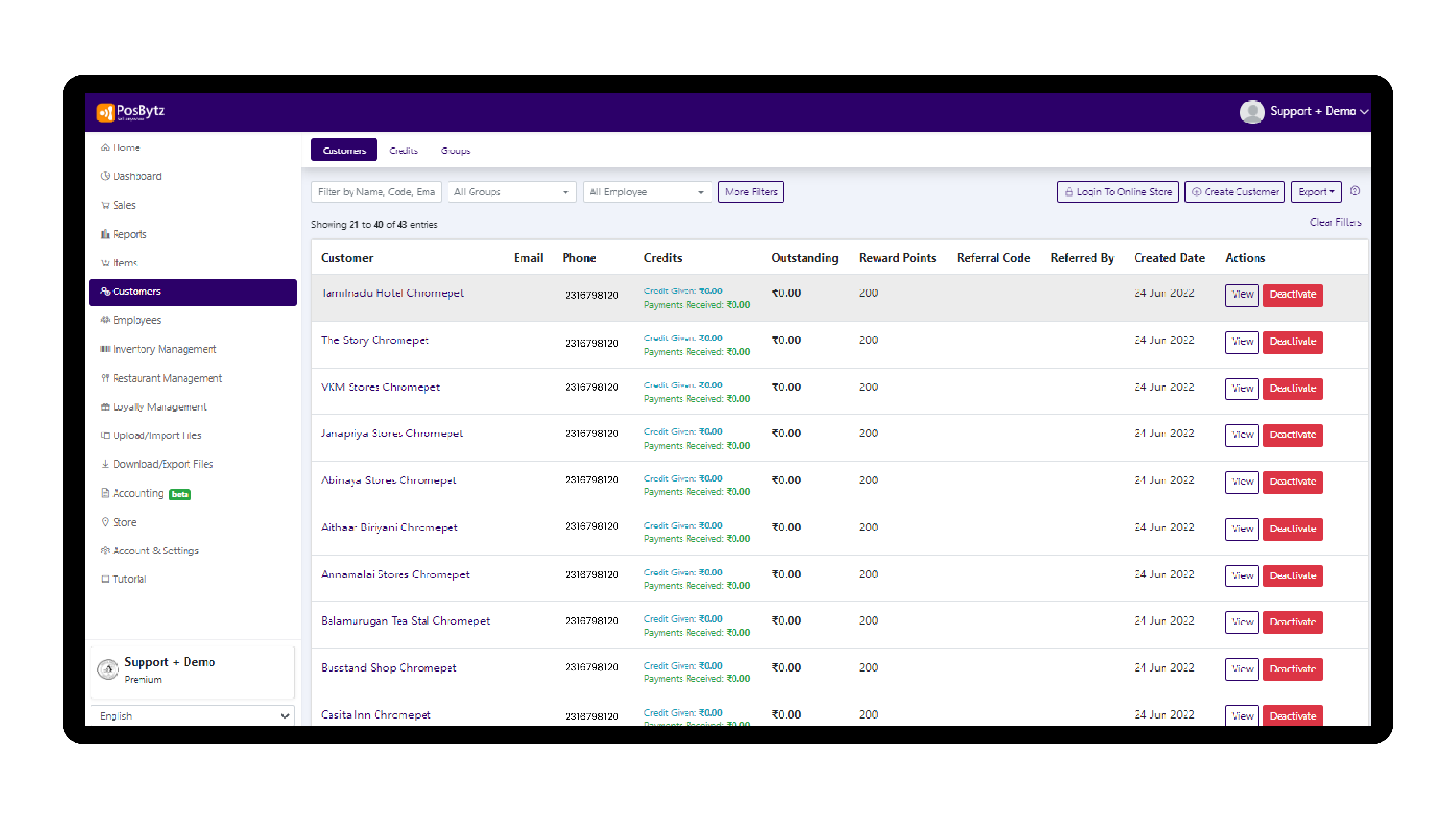
By leveraging the data of purchase histories, customer contact information, and loyalty points, you can improve your customer retention programs and decide on new marketing strategies.
4. Provide reliable support
Having strong customer support is the primary condition for purchasing anything or taking any services. For POS systems, you may have difficulties during configuration, integration, testing, deployment, and in the future with integrated features, add-on services, and subscription plans.
That’s why it’s always recommended to choose the POS system of those brands, who have 24*7 customer support in multi-languages.
5. Provide add-ons and apps
Some POS applications offer add-on features and services to handle employee scheduling, payroll structure, increments, loyalty programs, etc. Some others have add-on features for customer management, customer display, assign orders, advertisement display during online transactions, cash register management, etc.
The pricing structure is not the same; not even an approximate price range can be defined for the POS system, as their fees and subscription plans vary depending on the features, offered services, and add-ons available.
6. Offers & Discount Module
Check how comprehensive the discounts module is with Order level, Item level, and Category Level discounts available in the POS. Check out various discounts available with PosBytz Discounts.
7. Check about the integrations
Most POS software involves a complete configuration of all devices, but sometimes you may need a special configuration. Suppose you want to conduct a promotional offer across all retail outlets.
Hence, you’ll need special integration based on the device you use and the platforms where your other applications are installed, be it Shopify or WooCommerce, Whatsapp, or Zoho. So, check out integration and compatibility testing.
8. Ease of Use
Lots of add-on services and features will ease your job only when you get a user-friendly application interface. So, make sure to have an intuitive and easy-to-learn application that your employee can adapt to easily.
Conclusion
With the help of any best POS for a small business, such as PosBytz, you can run your business efficiently, whether it is small or large.
To ease your job to the next level, you can see they specifically designed retail POS applications for vegetable shops, meat stalls, grocery shops, liquor stores, restaurants, Cafe shops, Cloud kitchen, and boutiques, including separate billing software with varying pricing structures.
Now you know what the must-have items are. So, it’s time to list your special requirements and place an order for the best POS system for your business.
Related Resources
Recent Posts
- “A Complete Guide to Enhancing Retail Operations with Retail Accounting Software”
- Best Accounting Software for Restaurants: A Comparison study
- Simplifying Restaurant Bookkeeping: How to Choose the Right Software for Your Business
- Restaurant Technology Trends 2024: Revolutionizing the Industry
- Optimizing Restaurant Operations with Restaurant ERP Software: A Complete Guide
PosBytz is your comprehensive platform to manage everything you need to sell and grow your business.
PosBytz is a product of Bytize, Inc.




